Shopify SEO Agency Services & Technology
Want Bigger SEO Results, Faster for your Shopify business? We’ll start delivering tangible SEO results in 6 weeks in any vertical.

Want Bigger SEO Results, Faster for your Shopify business? We’ll start delivering tangible SEO results in 6 weeks in any vertical.







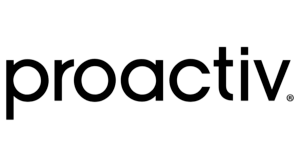

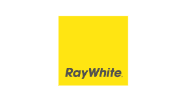




















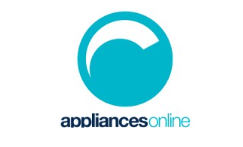









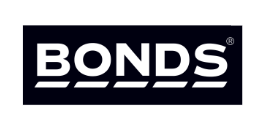
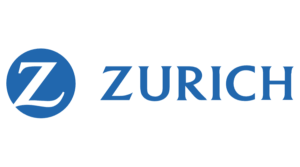






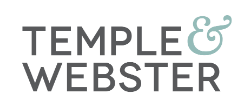

















































































Are you struggling with duplicate content affecting your Shopify search engine ranking? Tired of facing the restrictions of Shopify’s URL structure that limits your SEO flexibility? Looking for efficient strategies to overcome the complications of trailing slash redirect, canonical URLs, and robot.txt files in your Shopify store? You’re not alone, and the challenges you’re facing are common but not insurmountable.
For over a decade, we’ve worked with a range of eCommerce companies, understanding the nuances and idiosyncrasies of major CMS systems, including Shopify. Our experience spans across niche players like HardToFind and Peace Lily to larger clicks and bricks operators like Kmart and Best&Less. With a combined annual online revenue generated from current eCommerce SEO clients of over $1.1 billion, we know the ins and outs of delivering bigger results faster on any platform.
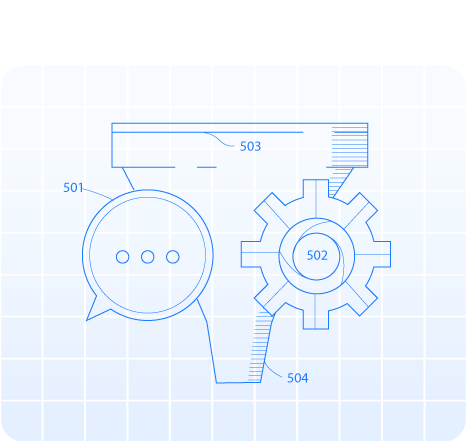
Having been in the SEO business since 2014, our team has grown to over 130 SEO specialists, experts, and strategists. We have crafted customized eCommerce SEO campaigns that have executed successfully across various marketing channels on every continent except for Antarctica.
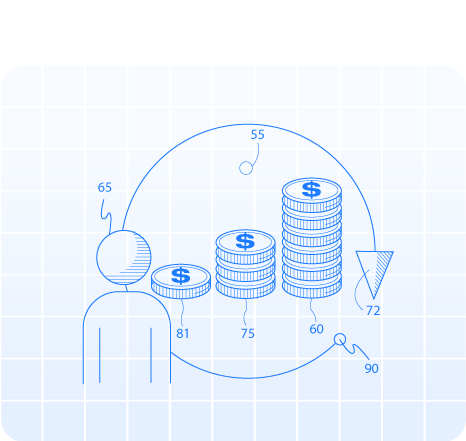
At the core of our strategy is a technology-first approach. We emphasize programmatic SEO, with our proprietary software capable of generating thousands of self-optimizing, dynamic pieces of content at scale. It works globally and with all CMS systems, including Shopify. This unique approach, combined with our international team, explains how we consistently deliver bigger SEO results, faster.

Start scaling your traffic in just 6 weeks with our full-body eCommerce SEO strategy, scalable content creation & proprietary technology. We guarantee bigger results in 6 weeks through our liberating approach to SEO, including practical prioritization and amplification. Our secret? Our hyper-targeted content creation process and comprehensive organic keyword research. We focus on search opportunities beyond traditional methods, achieving 10x more exposure in various platforms like Shopify, WordPress and Bigcommerce.

Ready to see results in just 6 weeks? Book a Shopify SEO Fast Track, and we’ll share how we’ve worked with local and international Shopify businesses like yours, starting with a strong technical SEO foundation.
eCommerce CMS systems like Magento, Drupal, BigCommerce and WordPress all have their pros and cons which need to be carefully navigated. Shopify, one of the most popular is no different.
| Common Shopify SEO Issues | Short Description | Impact on Approach to Shopify SEO |
| Duplicate Content | Automatically generated URLs can lead to duplicate content, affecting search engine ranking. | Requires extra vigilance to ensure that content is unique, potentially necessitating third-party tools or manual monitoring. |
| Restricted URL Structure | Shopify enforces a specific URL structure that can’t be customized, affecting SEO. | Limits flexibility in URL optimization, requiring alignment with Shopify’s structure rather than specific SEO strategies. |
| No Trailing Slash Redirect | Shopify doesn’t allow for a site-wide trailing slash redirect, leading to duplicate content issues. | May require manual corrections or additional tools to prevent duplicate content, complicating SEO optimization efforts. |
| No Control Over robots.txt File | Shopify doesn’t allow manual edits to the robots.txt file, affecting SEO customization. | Restricts control over how search engines crawl the site, making it necessary to adapt to the platform’s predefined settings. |
| Canonical URL Issues | Problems with canonical URLs can lead to duplicate content and harm SEO. | Requires constant monitoring and possible third-party solutions to manage canonicalization properly. |
| Breadcrumb URL Issues | Incorrect breadcrumb URLs can affect user experience and search engine indexing. | Necessitates careful management of breadcrumb navigation to ensure alignment with SEO best practices. |
| Sitemap Issues | Shopify generates sitemaps automatically, but sometimes not all pages are indexed. | May require manual interventions or specialized tools to ensure that all relevant pages are indexed properly. |
| Tag Page Limitations | Shopify automatically creates new pages for each product tag, which can’t be customized and may lead to duplicate content. | Requires strategic tagging and potentially third-party tools to minimize the impact of duplicate content on SEO. |
These nuances require advanced strategies tailored to Shopify’s platform. Our specialized solutions have proven successful in numerous Shopify stores, focusing on highly targeted technical SEO audits and aggressive content strategy ensure optimal organic traffic.


Organic traffic boost in a year
Increase in organic revenue in a year
Increase in Organic visibility across target KWs


Increase in non-brand incremental traffic in a year
ROI surge in 1 year
Average increase in transactions over a year


Positions added since the SEO Programme started in December 2021
YoY increase in SEO traffic
Increase in SEO revenue over a year


Position improvement in aggregate keyword rankings
YoY increase in SEO traffic
Sales revenue increase, delivering an SEO ROAS of 10.5


Position improvement in aggregate keyword rankings
YoY increase in SEO traffic
YoY sales revenue skyrocket in Credit and Identity products


In just 3 months, QuickBooks India's priority terms ascended into the top 10 search engine rankings


Lead increase via 24/7 Live Chat Sales, boosting conversion rates
Top-10 positions added in a 5-year period
Organic traffic growth over a consistent 5-year period


Top Forex terms boosted to Top-3 rankings in just 2 months
Organic traffic boost within the first 4 months
Cheaper CPA achieved for forex course sign-ups in 4 months from Organic vs Paid channels


Top-10 positions added in less than a year
Year-on-Year organic traffic increase in 10 months

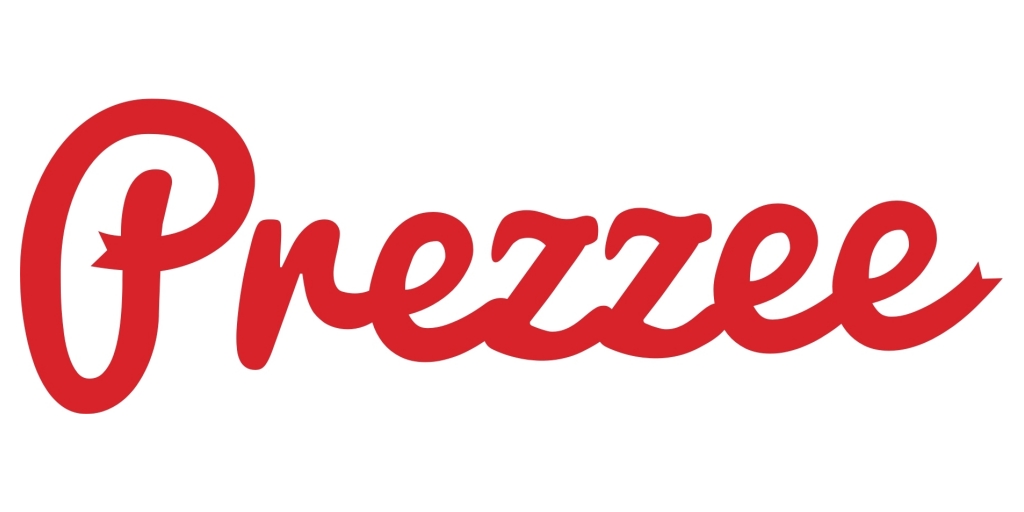
Top-10 positions added in just 6 weeks
Growth in organic traffic over 2 years
Higher conversion rate from organic versus other digital channels

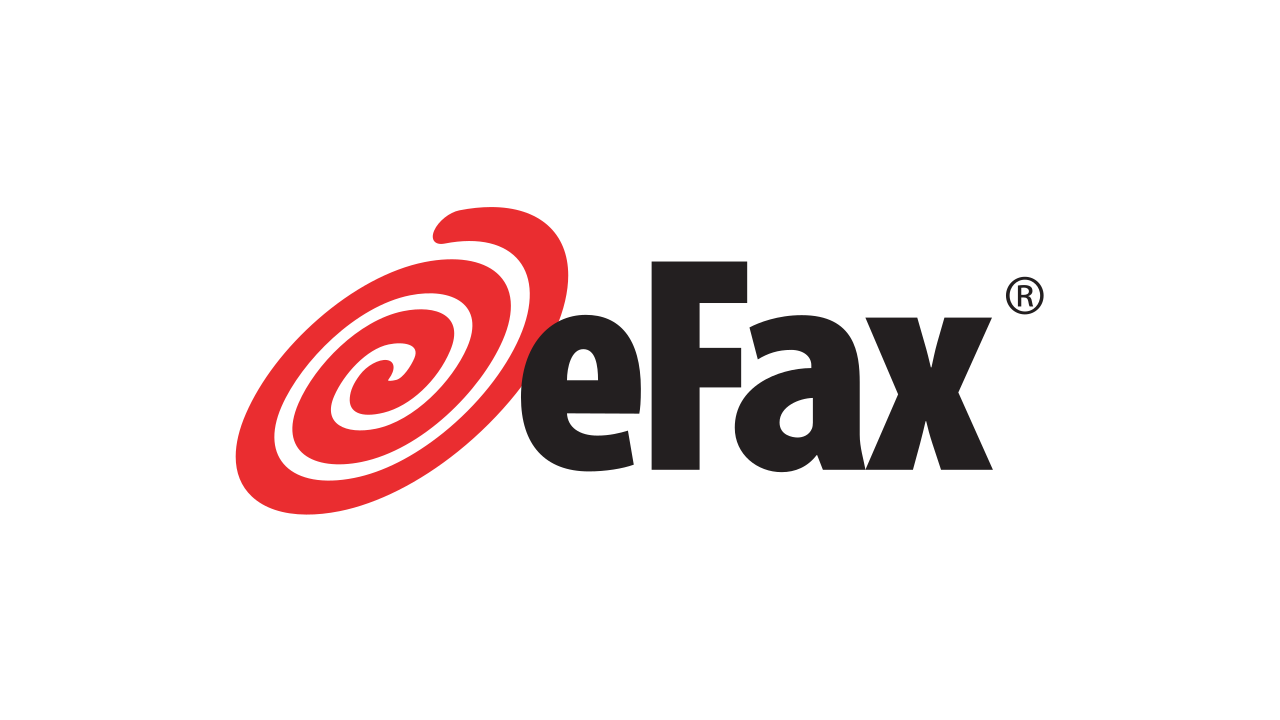
Organic traffic improvement over 3 years in B2B niche
Expansion in keyword rankings with dominant head terms


Surge in website traffic through targeted, strategic efforts
Average increase in leads from targeted pages
Monthly revenue growth due to successful SEO strategy


Increase in Top 10 rankings in 6 weeks
Growth in organic traffic over 2 years
ROI surge in 2 years, outperforming paid media


Increase in organic traffic within the first 6 weeks
Organic traffic increase within 12 months
Boost in organic leads over 12 months


Organic traffic boost in a year
Increase in organic revenue in a year
Increase in Organic visibility across target KWs


Increase in non-brand incremental traffic in a year
ROI surge in 1 year
Average increase in transactions over a year


Positions added since the SEO Programme started in December 2021
YoY increase in SEO traffic
Increase in SEO revenue over a year


Position improvement in aggregate keyword rankings
YoY increase in SEO traffic
Sales revenue increase, delivering an SEO ROAS of 10.5


Position improvement in aggregate keyword rankings
YoY increase in SEO traffic
YoY sales revenue skyrocket in Credit and Identity products


In just 3 months, QuickBooks India's priority terms ascended into the top 10 search engine rankings


Lead increase via 24/7 Live Chat Sales, boosting conversion rates
Top-10 positions added in a 5-year period
Organic traffic growth over a consistent 5-year period


Top Forex terms boosted to Top-3 rankings in just 2 months
Organic traffic boost within the first 4 months
Cheaper CPA achieved for forex course sign-ups in 4 months from Organic vs Paid channels


Top-10 positions added in less than a year
Year-on-Year organic traffic increase in 10 months


Top-10 positions added in just 6 weeks
Growth in organic traffic over 2 years
Higher conversion rate from organic versus other digital channels


Organic traffic improvement over 3 years in B2B niche
Expansion in keyword rankings with dominant head terms


Surge in website traffic through targeted, strategic efforts
Average increase in leads from targeted pages
Monthly revenue growth due to successful SEO strategy


Increase in Top 10 rankings in 6 weeks
Growth in organic traffic over 2 years
ROI surge in 2 years, outperforming paid media


Increase in organic traffic within the first 6 weeks
Organic traffic increase within 12 months
Boost in organic leads over 12 months


Organic traffic boost in a year
Increase in organic revenue in a year
Increase in Organic visibility across target KWs


Increase in non-brand incremental traffic in a year
ROI surge in 1 year
Average increase in transactions over a year


“The impact the Area Ten have made to Kmart has been significant – helping to establish SEO as a function and supporting Parmiss on getting us up to scratch. We would not be where we are now without your assistance.”
Dan Smith – Head of Digital Engagement @ Kmart


“The Area Ten team have consistently delivered across the initiatives we have engaged them in. We were impressed from the start when they were able to deliver SEO results within a month where our previous agencies struggled for more than a year. Our work with them has expanded since then given they constantly innovate in line with needs of our business, delivering strong returns from what we invest which is why they are a key partner for us and why I thoroughly recommend them.“
Carla Viera – Marketing Director @ Regus


Area Ten have been an trusted partner in our growth for several years driving consistent performance through SEO, PPC and 24/7 Live Chat Sales. I cannot speak highly enough of their professionalism and uncompromising focus on commercial outcomes for us. I would recommend them without hesitation.
Sadiq Merchant – Chief Operating Officer @ Upskilled


The Area Ten team were highly recommended to us and we understand why. As they promised they started showing clear SEO performance improvements within 6 weeks of starting. Despite the high level of competition in our part of the finance industry, in just a few months not only have they delivered a 33% improvement in organic traffic but also delivered quality traffic that converts at a higher rate. This has helped push SEO to become our biggest and most cost effective acquisition channel. I highly recommend the team and their unique set of technology.
Justin Brady – Director – Marketing


In just under two months since partnering with Area Ten for our SEO needs, we witnessed remarkable improvements in our rankings. This boost in visibility quickly translated into increased traffic, which we soon saw reflected in our ecommerce revenue growth. Their systematic approach to enhancing our digital performance continues to deliver impressive results. We couldn’t be happier and highly recommend their services.
Alicia Foster – Marketing Manager


Area Ten have supported Prospa with top notch professional service, both in performance marketing and SEO.
Their ongoing support helped Prospa consistently achieve its targets over the years.
I speak for all stakeholders at Prospa, past and present, when I say we couldn’t have asked for a better partner in this space!
Nadav Linden – Head of Performance Marketing & Digital Partners


Area Ten have supported Prospa with top notch professional service, both in performance marketing and SEO.
Their ongoing support helped Prospa consistently achieve its targets over the years.
I speak for all stakeholders at Prospa, past and present, when I say we couldn’t have asked for a better partner in this space!
Nadav Linden – Head of Performance Marketing & Digital Partners


Area Ten have supported Prospa with top notch professional service, both in performance marketing and SEO.
Their ongoing support helped Prospa consistently achieve its targets over the years.
I speak for all stakeholders at Prospa, past and present, when I say we couldn’t have asked for a better partner in this space!
Nadav Linden – Head of Performance Marketing & Digital Partners


As the former Head of SEO at Fairfax, Domain, I had the opportunity to collaborate with Jeremy on several projects, and the experience was nothing short of exceptional.
Area Ten’s ability to adapt to the ever-changing algorithms made a significant impact on our digital footprint. Their tailored strategies not only improved our visibility but also enhanced the user experience across our platforms.
Rama Gudipudi – Head of SEO @ Domain


“Our integrated SEO & PPC partnership with Area Ten has delivered incremental traffic and leads for our business. We are able to maximise our coverage on the search engines to effectively guide prospects to our website and generate cost-effective leads. On top of this, Area Ten also helps manage our live chat to drive incremental leads further.”
Adrian Mezzina, Schreuders


“Our SEO traffic and leads has continued to increased YoY and MoM since we started working with Area Ten over 2 years ago. SEO has become very important sales generation channel for PACK & SEND.”
Tim Robinson – Digital Marketing Manager @ PACK & SEND


“The GreeChat team has been excellent with providing a live chat service for our business. They have been responsive to our requests and willing to train their team to understand our offering. I would recommend them to any business wanting to have a 24/7 chat service on their website.”
Jonathan Gavshon – Co-CEO @ Group Homes Australia


“Earlier, we had used another live chat provider who could not help us with live chat leads attribution. We have been using Greechat for almost 4 years now with end to end lead tracking provided to us. The Greechat team is very easy to work with and love that the team is so responsive and willing to help. It is a great feeling knowing we have support right there with us and can ask them a question at any point. Hands down the most responsive and knowledgeable live chat providers I have ever used.”
Tariq Shafei – Director of Online Learning @ Kirana Colleges


“We use AreaTen to drive more sales for our business.
AreaTen supports us by providing actionable, valuable, and real-time insights as we work with the customers who depend on our information.
The team makes it easy to understand the data without having to be an online marketing expert, They have helped us every step of the way — from setting up campaigns to figuring out how best to analyse results. I recommend AreaTen to anyone looking to grow their online sales.”
Patrick Coghlan – CEO @ CreditorWatch


“We have had the pleasure of working with AreaTen for more than a year, and we can confidently say that they are among the best SEO companies we have ever worked with. Their expertise in search engine optimization has significantly contributed to our online visibility and increased traffic to our website. AreaTen’s team is knowledgeable, responsive, and dedicated to achieving results. Their attention to detail and ability to communicate complex technical concepts in a clear and concise manner is truly impressive. We highly recommend AreaTen to any business looking for top-quality SEO services.”
Dean Kim – Operations Manager @ Peace Lily


“We have been working with Area Ten for nearly three years and their knowledge and expertise has had a significant positive impact in helping evolve Snap’s digital marketing strategy. They are proactive with new initiatives and ideas that are aligned to Snap’s Transformation Strategy, ensuring we are in sync with the fast changing digital marketing space. The transparency that the Area Ten team provides in their reporting gives clarity on the ROI from the different initiatives undertaken. They are also willing to adapt to our individual requirements as well as challenge our thought process. It is this partnership with Area Ten that makes them our most valued resource as part of our agency roster.”
Raeleen Hooper – CMO @ Snap


“It’s been great to work with the team at Area Ten on performance based SEO model. We liked the structured approach they took to understanding our requirements and making recommendations around what we needed to do in conjunction with them. They were always available to provide expert advice and feedback around changes we were making. It was amazing to see results within the space of 2 months. Listed below are some of the results that were achieved since the start of the programme and Area Ten team have exceeded our expectations:
– Non branded organic traffic increased by 261%
– Aggregate rankings improved by 293 positions”
Elvin Singh – Customer Acquisition Manager @ Firstmac


“The Area Ten team has helped us to improve leads and visitor to conversion rates across a number of our channels. For example beyond just driving higher quality website traffic they also managed to improve the online enquiry rate by over 3x through form and page design changes. Area Ten’s experience has added enormous value to our website optimisation activity. They haven’t hidden behind jargon and consistently provide valuable learnings and input with how the various online marketing channels work synergistically together, ensuring our analytics is setup in such a way that we can properly track the true ROI for each channel.”
Andrew Grech – Partner @ Gordon Legal


“We worked with the Area Ten team on Paid Search, they handle all the paid search build, campaign implementation, and tracking set up to ensure we can track leads for all our Franchises which is amazing so we can move fast. I highly recommend Area Ten services. The support is A+, and whenever we’ve had questions, all issues are resolved or we’re provided hand-holding almost immediately.”
Todd Alexander – National Marketing Manager @ Ray White


“Area Ten was a key partner for Eventbrite in Asia-Pacific as we expanded our performance marketing into Singapore and Hong Kong. Their team was with us every step of the way as we developed our strategy to implement new Adwords and Display Network campaigns as Eventbrite’s platform was launched into new markets. We saw over 34% YoY growth in conversions from Singapore alone as a result of the advice, guidance and implementation that the Area 10 team completed, alongside significant improvements in click-thru rates, competitive bidding and cost per conversion. I would recommend their services to any business looking to rapidly accelerate growth through performance marketing.”
Joshua McNicol – General Manager APAC @ Eventbrite


“To help businesses simplify their retail operations, Square needs to be there for customers at the right time with the right information.
Area Ten has helped us with this over the last 5 years, delivering growth in sales through paid search and helping us unlock our growth potential. The team has always delivered expert advice and has been adaptable and reliable in maximising sales. Area Ten is a great partner to have on this journey.”
Cammy Nguyen – Paid Marketing Manager @ Square


“Proactiv as a brand has been built on the strength of its product as well as the effectiveness of its direct marketing. We have worked with Area Ten for almost 4 years. Their level of attention to the needs of the business have been of a consistently high quality. While we initially engaged them to help with our SEO this expanded to other aspects of our digital marketing given their ability to provide an integrated solution more robust than others we could find in the market. As a digital performance company that delivers they are firmly aligned with our ROI culture. We highly recommend them as a trusted advisor and partner for any performance driven organisation.“
Lara Giovenale – Marketing Director @ The Proactiv Company


“We’ve been working with Area Ten for over 3 years. They’ve delivered consistently for us across multiple brands in an extremely tough market vertical and operating environment. I’m ex-agency and have dealt with lots of others in the space and what Jeremy and his team do is unique and effective. Great guys to work with.“
Nick St John – Head of SEO @ IAG


“Area Ten has supported Zurich with a strong Paid Search and Social Media strategy, driving cost effectives leads and sales revenue for the last 5 years. The team understands our business and proactively seeks new initiatives and optimizations that are in line with our business goals. I would recommend Area Ten to any company looking to expand its online presence and revenue in a competitive industry like ours.”
Julie McCormack – Head of Strategy & Distribution, Direct Insurance @ Zurich Australia


“The impact the Area Ten have made to Kmart has been significant – helping to establish SEO as a function and supporting Parmiss on getting us up to scratch. We would not be where we are now without your assistance.”
Dan Smith – Head of Digital Engagement @ Kmart


“The Area Ten team have consistently delivered across the initiatives we have engaged them in. We were impressed from the start when they were able to deliver SEO results within a month where our previous agencies struggled for more than a year. Our work with them has expanded since then given they constantly innovate in line with needs of our business, delivering strong returns from what we invest which is why they are a key partner for us and why I thoroughly recommend them.“
Carla Viera – Marketing Director @ Regus


Area Ten have been an trusted partner in our growth for several years driving consistent performance through SEO, PPC and 24/7 Live Chat Sales. I cannot speak highly enough of their professionalism and uncompromising focus on commercial outcomes for us. I would recommend them without hesitation.
Sadiq Merchant – Chief Operating Officer @ Upskilled


The Area Ten team were highly recommended to us and we understand why. As they promised they started showing clear SEO performance improvements within 6 weeks of starting. Despite the high level of competition in our part of the finance industry, in just a few months not only have they delivered a 33% improvement in organic traffic but also delivered quality traffic that converts at a higher rate. This has helped push SEO to become our biggest and most cost effective acquisition channel. I highly recommend the team and their unique set of technology.
Justin Brady – Director – Marketing


In just under two months since partnering with Area Ten for our SEO needs, we witnessed remarkable improvements in our rankings. This boost in visibility quickly translated into increased traffic, which we soon saw reflected in our ecommerce revenue growth. Their systematic approach to enhancing our digital performance continues to deliver impressive results. We couldn’t be happier and highly recommend their services.
Alicia Foster – Marketing Manager


Area Ten have supported Prospa with top notch professional service, both in performance marketing and SEO.
Their ongoing support helped Prospa consistently achieve its targets over the years.
I speak for all stakeholders at Prospa, past and present, when I say we couldn’t have asked for a better partner in this space!
Nadav Linden – Head of Performance Marketing & Digital Partners


Area Ten have supported Prospa with top notch professional service, both in performance marketing and SEO.
Their ongoing support helped Prospa consistently achieve its targets over the years.
I speak for all stakeholders at Prospa, past and present, when I say we couldn’t have asked for a better partner in this space!
Nadav Linden – Head of Performance Marketing & Digital Partners


Area Ten have supported Prospa with top notch professional service, both in performance marketing and SEO.
Their ongoing support helped Prospa consistently achieve its targets over the years.
I speak for all stakeholders at Prospa, past and present, when I say we couldn’t have asked for a better partner in this space!
Nadav Linden – Head of Performance Marketing & Digital Partners


As the former Head of SEO at Fairfax, Domain, I had the opportunity to collaborate with Jeremy on several projects, and the experience was nothing short of exceptional.
Area Ten’s ability to adapt to the ever-changing algorithms made a significant impact on our digital footprint. Their tailored strategies not only improved our visibility but also enhanced the user experience across our platforms.
Rama Gudipudi – Head of SEO @ Domain


“Our integrated SEO & PPC partnership with Area Ten has delivered incremental traffic and leads for our business. We are able to maximise our coverage on the search engines to effectively guide prospects to our website and generate cost-effective leads. On top of this, Area Ten also helps manage our live chat to drive incremental leads further.”
Adrian Mezzina, Schreuders


“Our SEO traffic and leads has continued to increased YoY and MoM since we started working with Area Ten over 2 years ago. SEO has become very important sales generation channel for PACK & SEND.”
Tim Robinson – Digital Marketing Manager @ PACK & SEND


“The GreeChat team has been excellent with providing a live chat service for our business. They have been responsive to our requests and willing to train their team to understand our offering. I would recommend them to any business wanting to have a 24/7 chat service on their website.”
Jonathan Gavshon – Co-CEO @ Group Homes Australia


“Earlier, we had used another live chat provider who could not help us with live chat leads attribution. We have been using Greechat for almost 4 years now with end to end lead tracking provided to us. The Greechat team is very easy to work with and love that the team is so responsive and willing to help. It is a great feeling knowing we have support right there with us and can ask them a question at any point. Hands down the most responsive and knowledgeable live chat providers I have ever used.”
Tariq Shafei – Director of Online Learning @ Kirana Colleges


“We use AreaTen to drive more sales for our business.
AreaTen supports us by providing actionable, valuable, and real-time insights as we work with the customers who depend on our information.
The team makes it easy to understand the data without having to be an online marketing expert, They have helped us every step of the way — from setting up campaigns to figuring out how best to analyse results. I recommend AreaTen to anyone looking to grow their online sales.”
Patrick Coghlan – CEO @ CreditorWatch


“We have had the pleasure of working with AreaTen for more than a year, and we can confidently say that they are among the best SEO companies we have ever worked with. Their expertise in search engine optimization has significantly contributed to our online visibility and increased traffic to our website. AreaTen’s team is knowledgeable, responsive, and dedicated to achieving results. Their attention to detail and ability to communicate complex technical concepts in a clear and concise manner is truly impressive. We highly recommend AreaTen to any business looking for top-quality SEO services.”
Dean Kim – Operations Manager @ Peace Lily


“We have been working with Area Ten for nearly three years and their knowledge and expertise has had a significant positive impact in helping evolve Snap’s digital marketing strategy. They are proactive with new initiatives and ideas that are aligned to Snap’s Transformation Strategy, ensuring we are in sync with the fast changing digital marketing space. The transparency that the Area Ten team provides in their reporting gives clarity on the ROI from the different initiatives undertaken. They are also willing to adapt to our individual requirements as well as challenge our thought process. It is this partnership with Area Ten that makes them our most valued resource as part of our agency roster.”
Raeleen Hooper – CMO @ Snap


“It’s been great to work with the team at Area Ten on performance based SEO model. We liked the structured approach they took to understanding our requirements and making recommendations around what we needed to do in conjunction with them. They were always available to provide expert advice and feedback around changes we were making. It was amazing to see results within the space of 2 months. Listed below are some of the results that were achieved since the start of the programme and Area Ten team have exceeded our expectations:
– Non branded organic traffic increased by 261%
– Aggregate rankings improved by 293 positions”
Elvin Singh – Customer Acquisition Manager @ Firstmac


“The Area Ten team has helped us to improve leads and visitor to conversion rates across a number of our channels. For example beyond just driving higher quality website traffic they also managed to improve the online enquiry rate by over 3x through form and page design changes. Area Ten’s experience has added enormous value to our website optimisation activity. They haven’t hidden behind jargon and consistently provide valuable learnings and input with how the various online marketing channels work synergistically together, ensuring our analytics is setup in such a way that we can properly track the true ROI for each channel.”
Andrew Grech – Partner @ Gordon Legal


“We worked with the Area Ten team on Paid Search, they handle all the paid search build, campaign implementation, and tracking set up to ensure we can track leads for all our Franchises which is amazing so we can move fast. I highly recommend Area Ten services. The support is A+, and whenever we’ve had questions, all issues are resolved or we’re provided hand-holding almost immediately.”
Todd Alexander – National Marketing Manager @ Ray White


“Area Ten was a key partner for Eventbrite in Asia-Pacific as we expanded our performance marketing into Singapore and Hong Kong. Their team was with us every step of the way as we developed our strategy to implement new Adwords and Display Network campaigns as Eventbrite’s platform was launched into new markets. We saw over 34% YoY growth in conversions from Singapore alone as a result of the advice, guidance and implementation that the Area 10 team completed, alongside significant improvements in click-thru rates, competitive bidding and cost per conversion. I would recommend their services to any business looking to rapidly accelerate growth through performance marketing.”
Joshua McNicol – General Manager APAC @ Eventbrite


“To help businesses simplify their retail operations, Square needs to be there for customers at the right time with the right information.
Area Ten has helped us with this over the last 5 years, delivering growth in sales through paid search and helping us unlock our growth potential. The team has always delivered expert advice and has been adaptable and reliable in maximising sales. Area Ten is a great partner to have on this journey.”
Cammy Nguyen – Paid Marketing Manager @ Square


“Proactiv as a brand has been built on the strength of its product as well as the effectiveness of its direct marketing. We have worked with Area Ten for almost 4 years. Their level of attention to the needs of the business have been of a consistently high quality. While we initially engaged them to help with our SEO this expanded to other aspects of our digital marketing given their ability to provide an integrated solution more robust than others we could find in the market. As a digital performance company that delivers they are firmly aligned with our ROI culture. We highly recommend them as a trusted advisor and partner for any performance driven organisation.“
Lara Giovenale – Marketing Director @ The Proactiv Company


“We’ve been working with Area Ten for over 3 years. They’ve delivered consistently for us across multiple brands in an extremely tough market vertical and operating environment. I’m ex-agency and have dealt with lots of others in the space and what Jeremy and his team do is unique and effective. Great guys to work with.“
Nick St John – Head of SEO @ IAG


“Area Ten has supported Zurich with a strong Paid Search and Social Media strategy, driving cost effectives leads and sales revenue for the last 5 years. The team understands our business and proactively seeks new initiatives and optimizations that are in line with our business goals. I would recommend Area Ten to any company looking to expand its online presence and revenue in a competitive industry like ours.”
Julie McCormack – Head of Strategy & Distribution, Direct Insurance @ Zurich Australia


“The impact the Area Ten have made to Kmart has been significant – helping to establish SEO as a function and supporting Parmiss on getting us up to scratch. We would not be where we are now without your assistance.”
Dan Smith – Head of Digital Engagement @ Kmart


“The Area Ten team have consistently delivered across the initiatives we have engaged them in. We were impressed from the start when they were able to deliver SEO results within a month where our previous agencies struggled for more than a year. Our work with them has expanded since then given they constantly innovate in line with needs of our business, delivering strong returns from what we invest which is why they are a key partner for us and why I thoroughly recommend them.“
Carla Viera – Marketing Director @ Regus
Book a free video consultation below to see how your SEO & Paid Media campaigns are performing against global benchmarks in your industry.
We’ll uncover tangible opportunities to grow your business in just 6 weeks, including:
Work directly with our industry veterans. No extra management layers
Combining full body SEO, hyper-optimisation techniques and our proprietary tech to get bigger results, faster.
Since 2014, we've helped hundreds of local and global businesses establish authority, win trust and scale with search.
When considering the best Shopify SEO agency, understanding the nuances of Shopify vs. other eCommerce platforms is key. Look for an agency that recognizes Shopify’s specific challenges and offers solutions tailored to those needs. Timeframes are vital; while SEO is a long-term investment, an experienced SEO provider should focus on areas that start delivering results within no more than 6 weeks.
Yes, SEO can be implemented on Shopify. Shopify provides some built-in SEO tools and features, but it also has specific limitations and challenges. With our comprehensive understanding of Shopify’s SEO nuances, we’re able to maximize performance, leveraging both Shopify’s built-in capabilities and additional strategies tailored to the platform.
Shopify tags can help with SEO by providing a structured way to categorize products and content. However, they must be used strategically, as Shopify automatically creates new pages for each product tag, which can lead to duplicate content issues. Our approach includes careful management of tags to minimize negative impacts on SEO.
Changing a Shopify theme can affect SEO. Themes control many elements that impact SEO, such as site structure, heading tags, and mobile responsiveness. When switching themes, it’s essential to ensure that the new theme follows SEO best practices. We assist in selecting and customizing themes to align with SEO strategies and goals.
Shopify offers some built-in SEO features such as meta tags, sitemaps, and canonical URL handling. These can assist in optimizing your site for search engines. However, some unique challenges specific to Shopify may require additional attention or third-party tools. Our expertise in Shopify SEO ensures that you can navigate these challenges effectively.
Yes, Shopify has built-in SEO features that support basic optimization efforts. These include automatically generated sitemaps, customizable title and meta tags, and some canonical URL handling. However, Shopify’s SEO tools might not cover all advanced SEO needs, and understanding how to maximize these built-in features requires specialized knowledge. Our services ensure you leverage Shopify’s built-in tools to their fullest potential while addressing the platform’s specific SEO challenges.